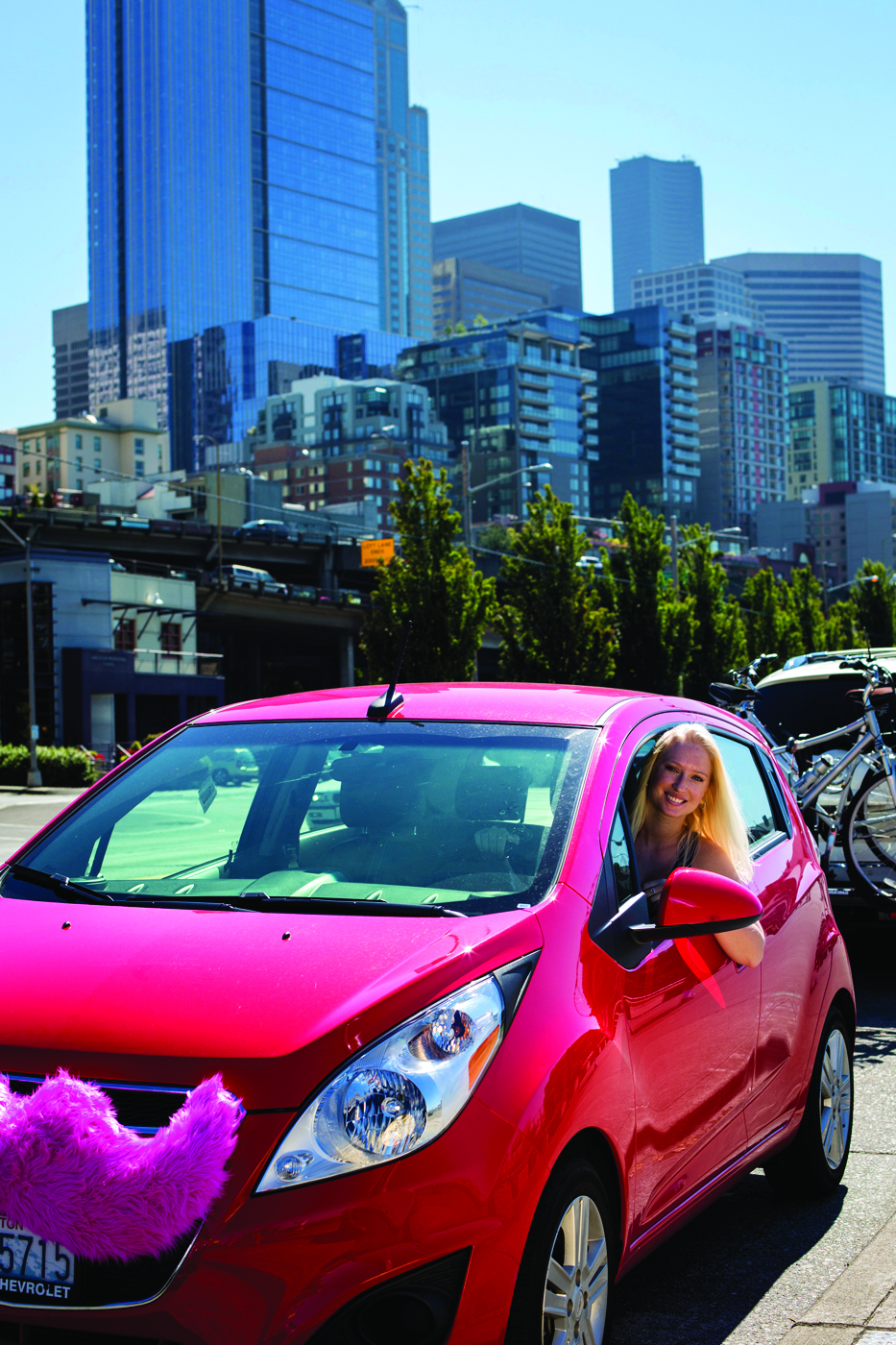Update: In the post below, I contend that the proposed regs aren’t too bad for ride-share apps. Au contraire, says a spokeswoman for Sidecar. Here’s the note she sent me this PM (emphasis mine):
People want transportation options in Seattle. We are disappointed in the Seattle City Council’s reluctance to embrace innovative transportation solutions that will benefit all Seattleites.
The Committee’s proposed legislation is anti-competition, anti-innovation and anti-consumer choice.
We hope that the Seattle City Council follows California’s lead and moves in favor of legislation that is best for its citizens, not the business interests of the taxi industry threatened by competition.
Harsh.
Here’s my original post:
In May, it was reported that the mustachioed rideshare start-up Lyft was valued at $275 million, by the people who determine such things.
So we’re guessing it will be able to cover the $50,000 fee (or .35 percent of revenue, whichever is higher) that Seattle would charge it to operate in the city under draft rules released today by City Council President Sally Clark.
Full coverage: The New Fight For Seattle’s Fares
We have calls out to stakeholders, but the rules seem pretty easy on the rideshare apps, which connect drivers using their own cars with people needing rides via smartphones.
The full set of regs can be found here, but here are some highlights: Drivers who don’t have a For-Hire Driver’s License will be required to take a course that teaches them about defensive driving and driver safety, and then pass a test. That will score them something called a TNC Driver’s Permit. The drivers will also be limited to 16 hours per week, which a city memo says “will help address peak time demand without flooding (the) market with vehicles during off-peak hours.”)
Breaking the rules could cost the driver up to $1,000.
As for the companies themselves — along with Lyft, Sidecar and Uber are the big players — they’ll need to get the cars used by their drivers inspected and carry an “umbrella” $1 million policy (Sidecar, for one, already carries this).
And then there’s the fee enumerated above, which would pay for 2 to 3 full-time employees at the city to manage all this.
As for the taxi drivers, who contend they’re getting royally screwed by the city’s unwillingness to crack down on rideshares while regulating them up the exhaust pipe, 50 new licenses will be created by the city.
Update
Dawn Gearhart with the Teamsters Union representing taxi drivers said that while they are happy some regulations are coming down the pike, they still don’t level the playing field for taxi drivers.
Her main bones to pick had to do with costly insurance plans that cab drivers must carry and Lyft drivers don’t. The personal insurance costs cab drivers $8,000, which puts them $8k behind Lyft drivers right off the bat.
She also complained that the rules allow the ride-shares to get a third party to inspect their cars, while cabs still need to be inspected by the city itself.
As for the $50,000 fee, she says “a large share of Uber is owned by Jeff Bezos. I think they’ll be able to cover it.”








